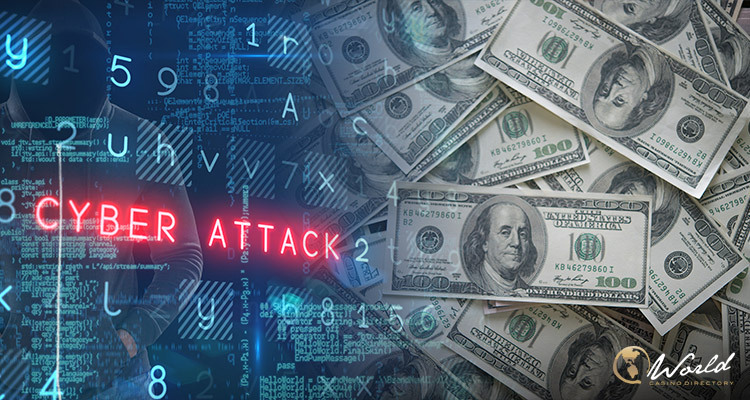JMP Securities gaming analyst Jordan Bender reportedly estimates that the the losses recently incurred to MGM Resorts International by a September 11 cyberattack could be covered by a $200 million cyber insurance policy. As reported, Wall Street analyst considers the coverage sufficient to remedy business interruption in eight states and service the pending ransom payment.
Ransom Money Could Start From $30 Mill bet646 ion:
Though the company has not acknowledged its intentions regarding such a payment, the Nevada Independent reports that Jordan Bender used the JMP Securities insurance technology team’s calculation to assess that the cost of a prospective ransom payment to the hackers could amount between $30 million and $50 million. Also, the amount of cyber insurance policy is reportedly set at $200 million following the recent estimate of Jefferies Gaming analyst David Katz that MGM is losing $4.4 million to $8.8 million of daily revenues since the attack.
Similar Scenario For Two Companies:
MGM Resorts reportedly acknowledged the cyberattack on September 11, 2023. Unknown hackers disrupted the company’s operations in eight states and the attack affected gaming floors, hotel operations, payrolls and other transactions. It followed the cyberattack on Caesars Entertainment from August carried out in a similar scenario. There have been anonymous reports saying that Caesars paid $15 million ransom money, but the company hasn’t confirmed this to date.
$200 Million Insurance Coverage Expected:
In his research note released on September 19, Bender reportedly stated that the insurance would cover up to four weeks of losses and the prospective ransom payment. Using Katz’s ps, it seems that MGM Resorts may lose around $170 million in revenues in four weeks to have the balance to the full insurance policy coverage available for the prospective ransom payment.
“If the breach is fully covered within the policy, MGM will incur minimal costs along the way, and see insurance premiums go up, but it would amount to a drop in the bucket for a company generating $4.7 billion of [cash flow] this year,” Bender reportedly said. However, the extent of damages should include the impact on the company’s stock as, according to the Nevada Independent, MGM Resorts shares have declined 6 percent since the cyberattack to represent a loss of around $850 million in market value.
Trying To Get Back To Normal:
The company is trying to get back on track at the earliest opportunity in order to stop losing revenues and customers as, according to Bender, these may turn to the competition in the given circumstances. “We do not know the timeline of when operations will return to normal, but our checks indicate MGM is still experiencing day-to-day issues that could persist for a period of time,” Bender reportedly wrote.
At the same time, Caesars Entertainment didn’t confirm anonymous reports about making ransom payment to the hackers. The company has recently said it was taking steps “to ensure that the stolen data is deleted by the unauthorized actor, although we cannot guarantee this result,” according to the source.
Long-Term Revenue Safe From Harm:
As MGM Resorts was already hacked in 2019, Caesars is now added to the list of gaming and leisure companies hacked in 2022 to point to the considerable fraudulent activity in the gaming cyber space. But it seems that the long-term effects will not make too much trouble as Bender reportedly said: “Historical precedent has shown past hacks of credit cards and personal information within this space have not materially impacted long-term revenue, and in turn, companies saw a recovery in the stock price.”


